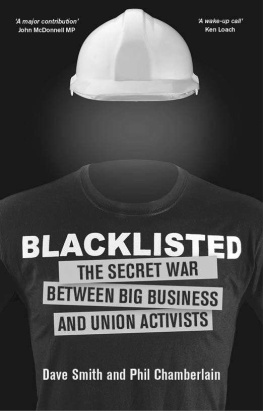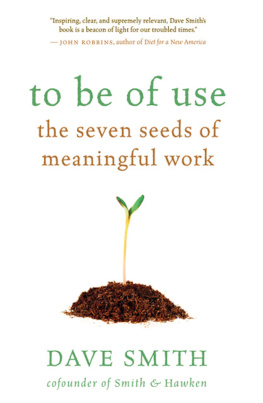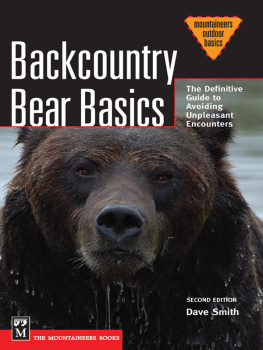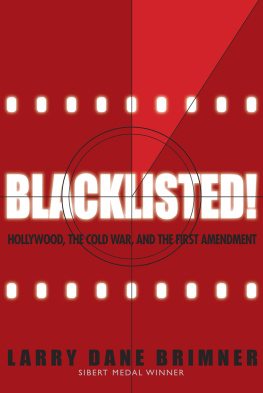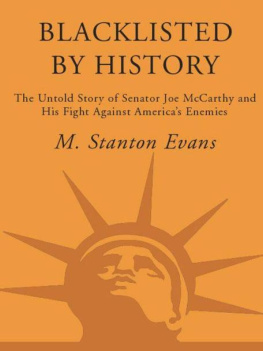The rights of Dave Smith and Phil Chamberlain to be identified as the authors of this work has been asserted in accordance with the Copyright, Designs and Patents Act 1998.
All rights reserved. No part of this book may be reproduced, stored in a retrieval system or transmitted, in any form or by any means, electronic, electrostatic, magnetic tape, mechanical, photocopying, recording or otherwise, without prior permission in writing of the Publisher.
A catalogue record for this book is available from the British Library.
Library of Congress Cataloging-in-Publication Data.
A catalog record for this book is available from the Library of Congress.
Foreword
by John McDonnell MP
Two hundred years ago working people toiling in the fields and in the small workshops and emerging factories of the early industrial revolution discovered a secret. It was the secret of solidarity. The secret that individually they were weak and powerless in the face of exploitative employers and yet if they combined together they had a collective strength to secure better wages and working conditions.
Workers went on to celebrate this discovery by sewing the slogans of solidarity on their trade-union banners, still displayed with pride today. Unity is Strength, United We Stand, Divided We Fall. In its more modern form the slogan of defiance, The Workers United Will Never Be Defeated, first chanted on the streets of Latin American cities, echoes the same principle of a belief in solidarity.
Employers, too, understood the threat that workers solidarity presented to the unrestrained power they had over their wage labourers. Thats why they devised a variety of means to break the organizational form the workers developed to exercise their power of solidarity, the early trade unions.
The mechanisms that have been used by employers over the last two centuries to undermine the collective strength of workers in their trade unions have ranged from physical intimidation and individual victimization to the use of the law and even the lockout.
Physical intimidation against trade unionists by employers or the state on behalf of employers has been a consistent feature of industrial relations in this country, with stark examples ranging from Winston Churchill letting loose the troops to fire on the miners at Tonypandy in 1910 to the horse-mounted police baton charges against the miners at Orgreave 70 years later.
The victimization of individuals to break the trade-union movement has never ceased, whether it has been the transportation of the Tolpuddle Martyrs in 1834 or the collusion by politicians, the security forces and the judiciary to imprison the Shrewsbury pickets in the 1970s.
Throughout modern history employers have also resorted to legislation to stifle the growth of trade unions and undermine their effectiveness. In the early 19th century it was the Combination Acts attempting to prevent the birth of trade unionism, while in the 1980s it was the anti-trade union laws of Margaret Thatcher, introduced to undermine trade unions ability to take solidarity action to protect and promote the interests of their members.
While trade unionists have always had in their armoury the ultimate weapon of solidarity, the strike, employers have also repeatedly demonstrated that they too can take their own form of strike action, the lockout. Throughout the 19th and early 20th century when the movement of labour was inhibited by the limited transport available, local employers frequently put their competition temporarily aside and combined in order to break the unions by locking their workers out until economic necessity forced them to accede to employers terms. In the recent Grangemouth oil-refinery dispute in Scotland we have seen the ultimate modern equivalent of the lockout, when the owner was willing to close the whole plant down in order to force the trade unions to accept job and pay cuts.
A further tactic used by the employer, usually covertly, has been the blacklist. It has been a simple but extremely effective weapon used by employers to attack trade unions. The blacklist works by employers identifying an individual trade unionist and then working together to prevent that individual gaining employment at any of their operations.
This is aimed to have three direct effects.
First, there is no doubt it aims to break that individual so that he or she is forced to choose between earning a living at their trade and feeding their family or relinquishing being an active trade unionist and therefore no longer an individual threat to the employers power over their workforce.
Second, it aims to quarantine the individual so that, by denying them access to the workplace, they have no ability to represent, influence, persuade or mobilize others to stand up for their rights at work.
Third, it undoubtedly aims to send out a message to anyone else who may be tempted to join a union and play their role in representing others, that they too could be sent packing by the employer and find themselves in the dole queue as a result.
The constant problem for trade unionists is that, although they may believe that a blacklist exists, it usually operates in secret and is hard, if not at times impossible, to prove.
When a Labour government was elected in 1997, party policy committed it to outlawing the operation of blacklists and in some of its first employment legislation the government introduced the basis upon which this appalling practice could be made illegal. Unfortunately it failed to prioritize the enactment of the detailed secondary legislation that would have given effect to this primary legislation.
There was no sense of priority because government ministers were not convinced that blacklisting was still in operation. It was looked upon by New Labour ministers under Tony Blair as an anachronism, long extinct in a modern economy. In addition, Blair was constantly anxious to avoid anything that could be seen to be supporting trade unions and that might have upset the CBI or the Institute of Directors. Even the TUC and many trade unions put the issue on the backburner, citing lack of evidence.
In Parliament and with ministers, I regularly asked when the blacklisting regulations were to be published, to be met with a disdainful air, as if the question were an irrelevance.
When the raid by the Information Commissioner began to expose the role of The Consulting Association in the operation of a large-scale modern blacklist, I convened a meeting in Parliament of trade unionists who had suspected that they had been blacklisted and the Blacklist Support Group was formed.
At these meetings I listened to so many heartrending stories of individuals and their families who had been forced into unemployment and poverty simply because the blacklisted worker could not follow their trade or gain employment at all. Many families could not cope with the strain and fell apart. The pressure broke the health and shortened the lives of many of those that were blacklisted.
Thanks to the tireless work of the Blacklist Support Group members and a number of their supporters, the blacklist story is now being told and redress is being sought. The operation of a blacklist is now accepted in those circles in the Labour and trade union movement that were in the past sceptical or dismissive. Indeed, we now know that some may even have been implicated in the operation of the blacklist.

